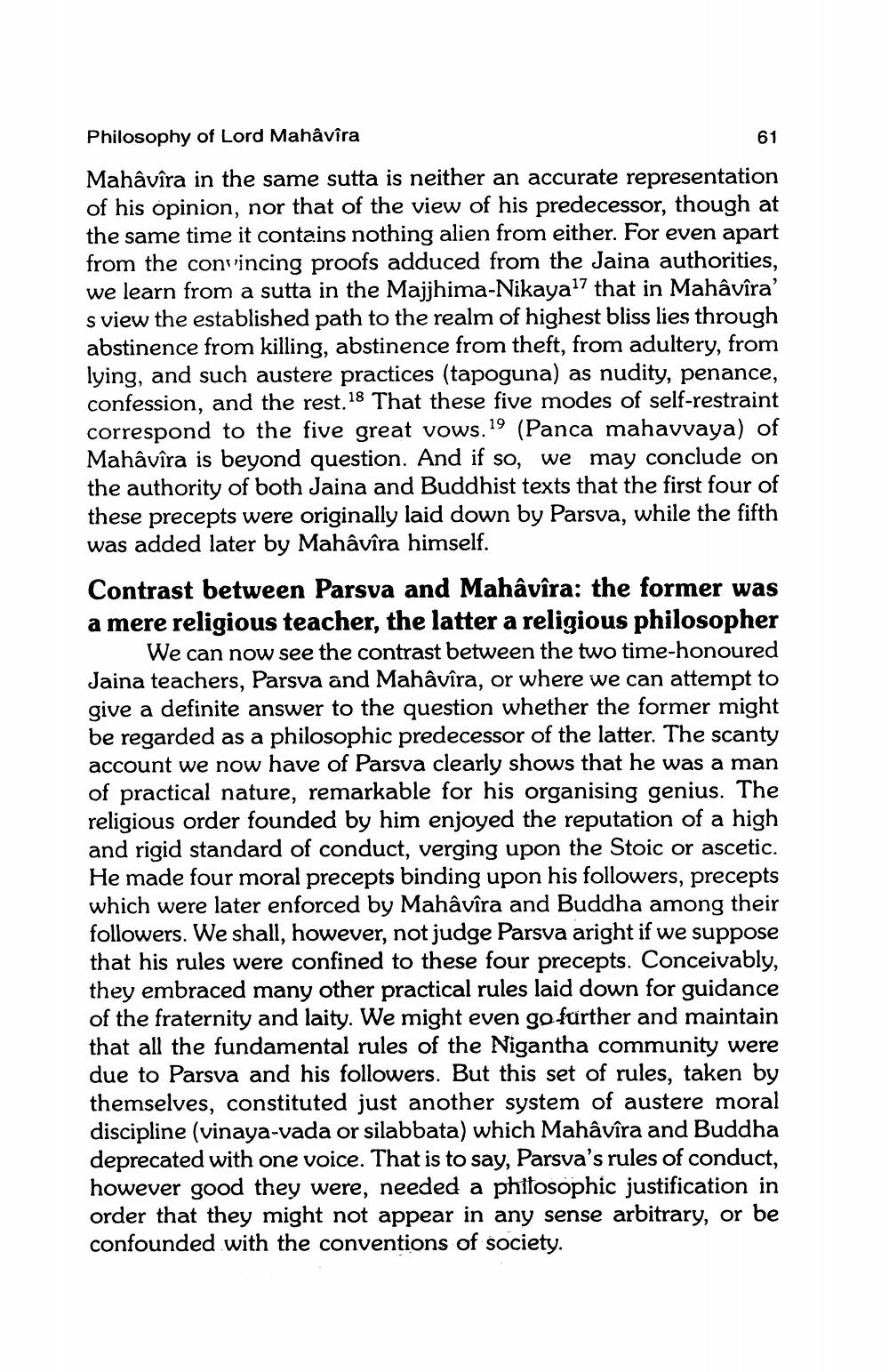________________
Philosophy of Lord Mahâvîra
61
Mahâvîra in the same sutta is neither an accurate representation of his opinion, nor that of the view of his predecessor, though at the same time it contains nothing alien from either. For even apart from the convincing proofs adduced from the Jaina authorities, we learn from a sutta in the Majjhima-Nikaya17 that in Mahâvîra' s view the established path to the realm of highest bliss lies through abstinence from killing, abstinence from theft, from adultery, from lying, and such austere practices (tapoguna) as nudity, penance, confession, and the rest. 18 That these five modes of self-restraint correspond to the five great vows. 19 (Panca mahavvaya) of Mahâvîra is beyond question. And if so, we may conclude on the authority of both Jaina and Buddhist texts that the first four of these precepts were originally laid down by Parsva, while the fifth was added later by Mahâvîra himself. Contrast between Parsva and Mahâvîra: the former was a mere religious teacher, the latter a religious philosopher
We can now see the contrast between the two time-honoured Jaina teachers, Parsva and Mahâvîra, or where we can attempt to give a definite answer to the question whether the former might be regarded as a philosophic predecessor of the latter. The scanty account we now have of Parsva clearly shows that he was a man of practical nature, remarkable for his organising genius. The religious order founded by him enjoyed the reputation of a high and rigid standard of conduct, verging upon the Stoic or ascetic. He made four moral precepts binding upon his followers, precepts which were later enforced by Mahâvîra and Buddha among their followers. We shall, however, not judge Parsva aright if we suppose that his rules were confined to these four precepts. Conceivably, they embraced many other practical rules laid down for guidance of the fraternity and laity. We might even go further and maintain that all the fundamental rules of the Nigantha community were due to Parsva and his followers. But this set of rules, taken by themselves, constituted just another system of austere moral discipline (vinaya-vada or silabbata) which Mahâvîra and Buddha deprecated with one voice. That is to say, Parsva's rules of conduct, however good they were, needed a philosophic justification in order that they might not appear in any sense arbitrary, or be confounded with the conventions of society.




